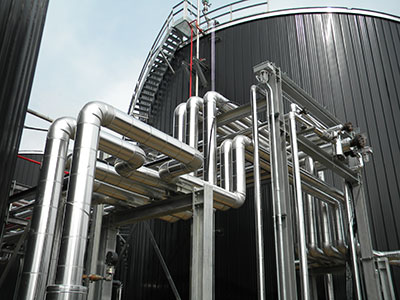The pressure to reduce energy losses and prevent corrosion in industrial piping is real. Many people struggle to select the right insulation for lasting protection.
Cellular glass insulation offers excellent thermal performance, non-absorbency, and proven resistance to corrosion under insulation (CUI), making it an ideal choice for both hot and cold pipe applications in challenging environments.

Industrial facilities often lose energy and struggle with maintenance. Poor insulation causes heat loss and moisture problems. I have seen cases where the wrong insulation led to increased operational costs and frequent repairs. Cellular glass insulation greatly reduces these risks, but there’s more to unpack. Let’s take a closer look at the main strengths and applications of cellular glass insulation for pipes.
Why is cellular glass so effective for thermal insulation on pipes?
Industrial operations demand pipes that maintain temperature and minimize heat loss. Many insulation solutions fail when exposed to moisture or extreme temperatures. I remember a time when water ingress ruined an entire system’s insulation. Cellular glass insulation performs consistently because it maintains its thermal efficiency and blocks water entirely.
Cellular glass has a closed cell structure that limits heat transfer and doesn’t absorb moisture. This keeps pipes dry and efficient across many temperature ranges.

Thermal insulation on pipes means controlling energy costs and system reliability. Cellular glass’s uniform structure gives constant thermal conductivity over decades. Pipes that see extreme conditions, like cryogenic or steam systems, rely on this material to reduce losses and maintain thermal performance. I noticed that using cellular glass lowers process fluctuation and helps facilities hit their operation targets without downtime.
How does cellular glass prevent corrosion and moisture problems in piping systems?
Corrosion under insulation ruins pipes and leads to unexpected shutdowns. The source is often moisture trapped inside or absorbed by common insulation materials. I once saw a factory lose thousands in repairs because their insulation soaked up water over time, causing severe CUI. With cellular glass, this worry disappears.
Cellular glass does not absorb water or vapor. It forms a tight barrier around pipes, stopping moisture from reaching the metal. No cracks or pores invite water in, so pipes remain safe and dry.

Corrosion prevention is vital, especially with costly, hazardous systems. When pipes run in marine or chemical plants, cellular glass stands out. It eliminates pathways for moisture and chemicals. Facilities benefit with longer lifespans, reduced repairs, and fewer safety incidents. This material’s water-tight nature protects equipment, keeping maintenance costs low.
Where does cellular glass insulation excel for hot and cold pipes?
In many sectors, pipes carry hot steam, freezing liquids, or gases. The wrong insulation becomes brittle, soft, or fails under these extremes. I saw a team struggle with frost build-up and heat loss until switching to cellular glass.
Cellular glass handles temperatures from cryogenic lows to hot steam environments. Its rigid structure stays strong and functional wherever thermal efficiency is critical.
Cellular glass fits hot pipes by resisting fire and staying stable. Cold pipes stay condensation-free. Systems run smoother and save money on energy. Teams find installation straightforward, and long-term stability means less hassle for the maintenance crew.
What are the basic steps in installing cellular glass pipe insulation?
Pipe insulation must be fast and dependable. Any delay or mistake increases cost and safety risks. I once managed a project with tight deadlines. Using cellular glass made the process smoother. Preparation, cutting, and fitting went quickly. Once installed, joints got sealed to keep moisture out.
Installing cellular glass requires clean surfaces, precision cutting, and sealing. Once wrapped, crews tape or coat joints to create a continuous barrier.
Every step matters for optimal results. Installation teams need minimal training. The material’s uniformity makes mistakes less likely, leading to long-term system reliability and peace of mind.
Conclusion
Cellular glass insulation guarantees pipe efficiency, blocks moisture, and prevents corrosion, resulting in reliable operation and reduced maintenance for industrial facilities.

